Can glamping and cafes help save British farmers?
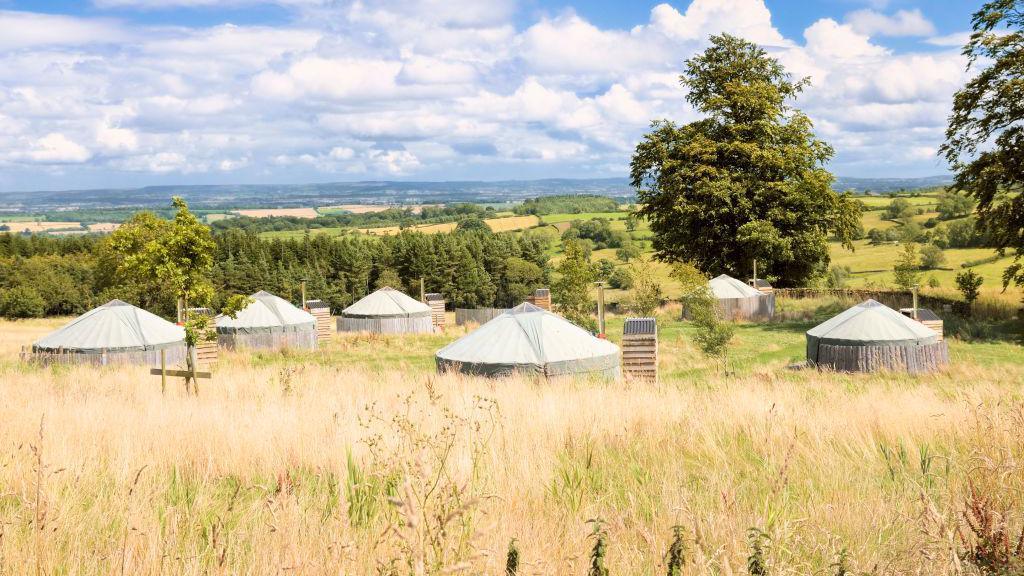
One farmer said they were currently a struggle to make a living
- Published
Farmers have said they are diversifying away from traditional methods of earning income - like livestock or arable crops - amid rising costs, falling government support and cheap imports.
Nick Eastwood, who runs a 200-acre farm in East Sussex with his wife Anna, told the BBC being a farmer was "horrific".
"Making money out of farming is nearly impossible," he said, adding the couple had "no choice" but to move into glamping and open a cafe to avoid selling up.
The government said it was investing billions in sustainable food production and nature's recovery, while slashing costs for food producers to export to the EU.
They added the former president of the National Farmers' Union Baroness Minette Batters had been appointed to advise officials on reforms to boost farmers' profits.
'Not a level playing field'
Ms Eastwood said it was still "very challenging" to run the farm, despite diversifying.
She cited rising business rates since Covid, and national insurance and minimum wage increases, alongside products costing "hugely" more.
Mr Eastwood added reduced government subsidies and competition from cheap non-European imports, which conformed to lower standards, were also causing problems for farmers.
"We're not playing on a level playing field," he said.
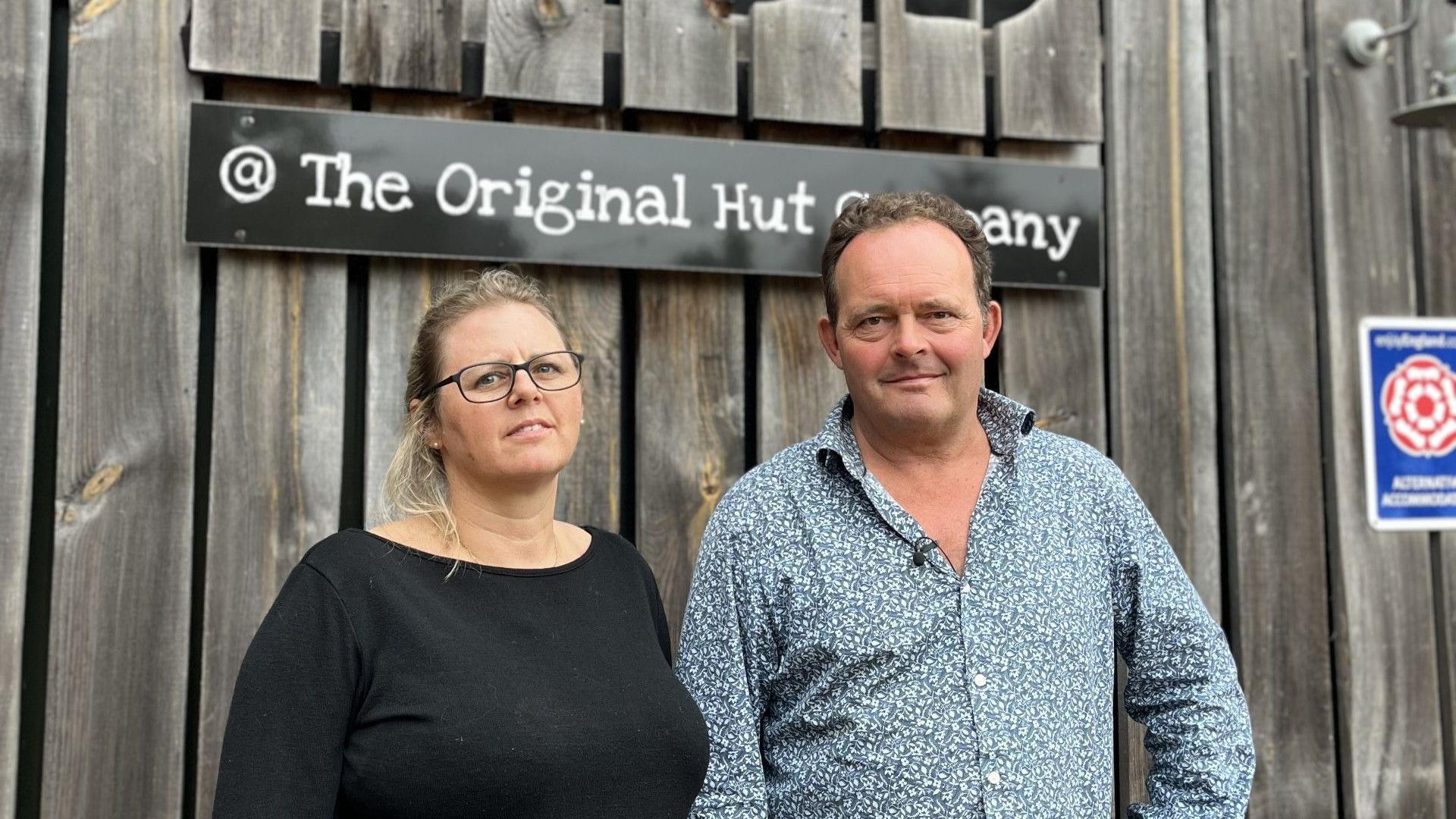
Nick and Anna Eastwood run a 200-acre farm in East Sussex
A government spokesperson said they had taken "tough but necessary decisions" on tax, which meant they could protect "working people" from higher taxes, and invest into the NHS, defence and other public services.
A record 6,365 agriculture, forestry, and fishing businesses ceased trading in the year up to June 2025 - the highest number of closures since the Office for National Statistics began tracking figures, external in 2017.
Government data, external shows 71% of farms in England had some diversified activity in 2023/24 - 10% more than in 2014/15.
The most popular method of diversification was renting out buildings for non-agricultural uses, while the second was generating solar energy, the data adds.
'Micky taking'
John Dale, a seventh generation farmer in Dorking, Surrey, told the BBC diversification projects could make farms more resilient.
He tried to run a milk float, before he started to make a profit from renting out old farm buildings to a brewery and a boxing gym.
The former dairy farmer said the "really paltry margins on milk" and "micky taking" in the industry meant he became bitter and "absolutely detested the job".
Now diversification allowed him to focus on parts of farming he enjoyed.
But he added recent changes to inheritance tax by the government - which some have called an "existential threat" to farmers - were a "worry".
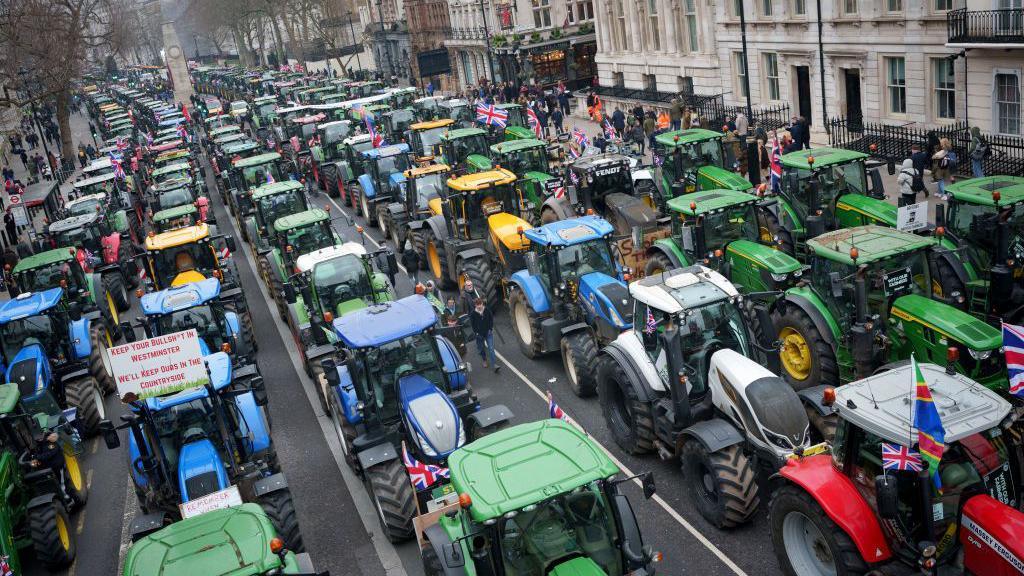
Some farmers have protested against inheritance tax changes
Clare Readman, who runs a farm with her dad Simon in Kent, told the BBC she had started a successful pick-your-own-flower business on once-arable land.
She said the family was "quite surprised" to learn an acre of cut flowers is "significantly more profitable" on average than wheat, oats or barley over time.
Mr Readman added sticking to one form of produce is no longer viable for small British farms.
"[Diversification] is almost essential," he said.
Ms Readman, a garden lover, said the farm's new business benefited the environment.
The seasonal wildflowers and traditional weeds she plants are "very good pollinators", providing places for butterflies and moths to lay their eggs.
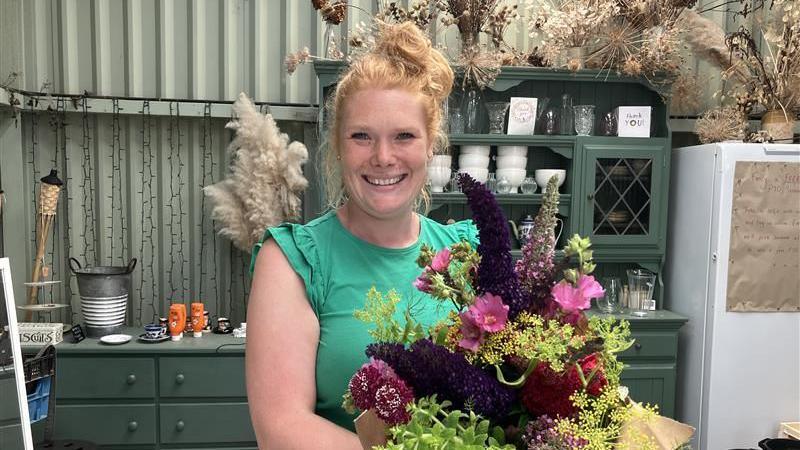
Ms Readman said diversification also helps the environment
Martin Hole, East Sussex chairman of the National Farmers' Union, said farm diversification supported the wider rural economy and nature restoration, plus tackled climate change.
However, he said it was "vital" food production remains farmers' core business.
"The industry provides more than 45,500 jobs to the South East and London and contributes more than £813m to the economy in these areas," he said.
"The government has said that food security is national security. We want to deliver this and to keep producing quality, nutritious, healthy, affordable, traceable food, while maintaining world-leading standards of animal welfare."
Follow BBC Sussex on Facebook,, external X, external and Instagram., external Send your story ideas to southeasttoday@bbc.co.uk, external or WhatsApp us on 08081 002250.
Related topics
- Published23 March
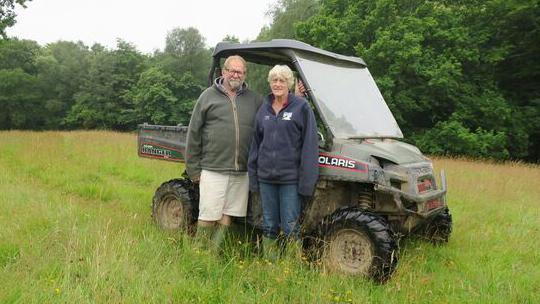
- Published7 August 2024
